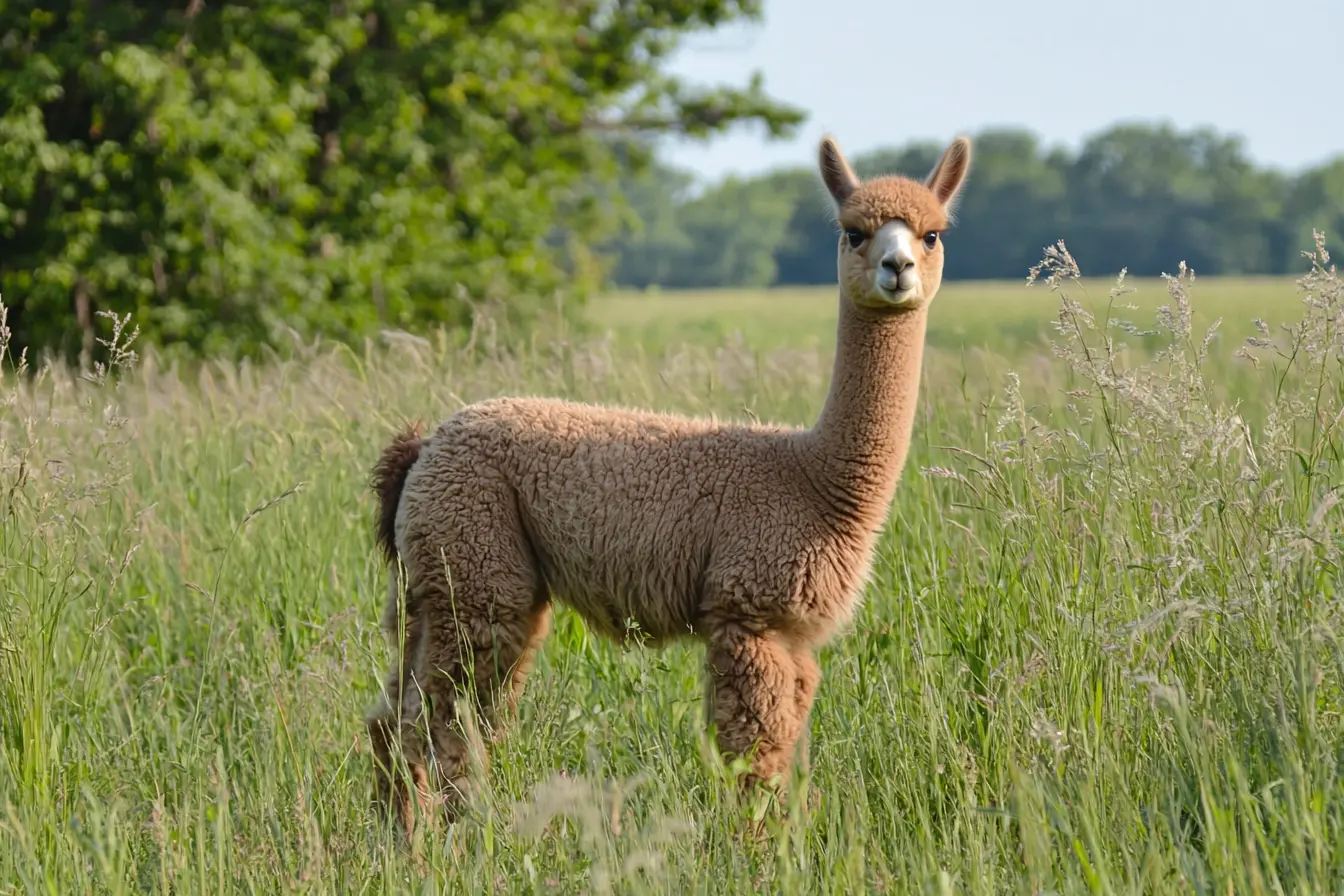
Common Illnesses in Alpacas and Their Symptoms: A Guide for New Owners
Welcoming alpacas to your farm is an exciting venture. These gentle, curious creatures can bring joy and economic value, but like any livestock, they require careful health monitoring. Understanding common illnesses and their symptoms is crucial for maintaining a healthy herd. This guide will help you identify potential health issues and provide steps you can take to ensure your alpacas receive the care they need.
Gastrointestinal Parasites
Symptoms to Watch For:
- Weight loss
- Diarrhoea
- Lethargy
- Decreased appetite
- Anaemia (pale gums)
Action: Regular faecal tests are essential for detecting gastrointestinal parasites early. Consult with a vet to establish a deworming schedule tailored to your farm's specific conditions. Maintaining clean pastures and rotating grazing areas can help minimise the risk of infestation.
Meningeal Worm (Parelaphostrongylus tenuis)
Symptoms to Watch For:
- Unsteady gait
- Paralysis (especially in hind legs)
- Stiffness or lameness
- Head tilt
- Loss of coordination
Action: Immediate veterinary attention is required if meningeal worm is suspected. Preventative measures include administering regular anti-parasitic treatments and managing deer populations near your farm, as deer are primary hosts for this parasite.
Heat Stress
Symptoms to Watch For:
- Panting
- Drooling
- Lethargy
- Increased heart rate
- Staggering or collapse
Action: Provide ample shade and fresh water. During particularly hot weather, consider using fans or misting systems to cool your alpacas. Shearing the fleece before the hottest months can also help prevent heat stress.
Clostridial Diseases (Tetanus, Enterotoxemia)
Symptoms to Watch For:
- Sudden death (in acute cases)
- Abdominal pain
- Bloating
- Diarrhoea
- Stiffness and muscle spasms (in tetanus)
Action: Vaccination is the best prevention against clostridial diseases. Establish a vaccination schedule with your vet and ensure all alpacas are up to date with their shots.
Respiratory Infections
Symptoms to Watch For:
- Coughing
- Nasal discharge
- Difficulty breathing
- Fever
- Lethargy
Action: If respiratory infection is suspected, isolate the affected animal to prevent the spread of illness. Provide a warm, dry environment and consult with your vet for appropriate treatments, which may include antibiotics or supportive care.
Mastitis
Symptoms to Watch For:
- Swollen or hard udder
- Pain when touched
- Decreased milk production
- Fever
- Abnormal milk (discolouration or clots)
Action: Immediate veterinary intervention is necessary for mastitis. Treatment usually involves antibiotics and proper milking hygiene practices. Ensure nursing crias are also monitored for health issues related to the mother's condition.
Vitamin D Deficiency (Rickets)
Symptoms to Watch For:
- Bowed legs
- Lameness
- Reluctance to move
- Swollen joints
Action: Ensure your alpacas receive adequate sunlight or supplement their diet with vitamin D, especially in regions with long winters or limited sunlight. A vet can recommend appropriate supplements and dosages.
General Tips for Alpaca Health Management
- Regular Check-ups: Routine health checks by a vet can catch potential issues early.
- Balanced Diet: Ensure your alpacas have a balanced diet with necessary vitamins and minerals.
- Clean Environment: Maintain clean living conditions to prevent infections and parasite infestations.
- Record Keeping: Keep detailed health records for each alpaca to track vaccinations, treatments, and any health issues.
By staying vigilant and proactive, you can ensure your alpacas remain healthy and thrive on your farm. Always consult with a veterinarian when in doubt and establish a good relationship with them to provide the best care for your herd.
Vets near you
Speciality vets
- Aquatics vet specialists
- Birds vet specialists
- Camelids vet specialists
- Cats vet specialists
- Cattle vet specialists
- Deer vet specialists
- Dogs vet specialists
- Equines vet specialists
- Exotic vet specialists
- Goats vet specialists
- Pigs vet specialists
- Poultry vet specialists
- Sheep vet specialists
- Small Mammals vet specialists
- Wild vet specialists
Vet facilities
- Accessible by public transport
- Blood testing
- Car park nearby
- Client car park
- Dentistry
- Diagnostic imaging
- Disabled public access
- Flea and worm treatments
- Microchipping
- Mobile services
- Neutering
- Open at weekends
- Out-of-hours service
- Referral interests
- Referrals only
- Street parking outside
- Toilets available
- Vaccinations



